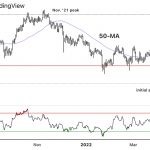Crypto industry representatives pushed back at attempts to make them report details of NFTs, decentralized finance (DeFi) transactions and retail payments to tax authorities at a meeting of the Organization for Economic Co-operation and Development (OECD) in Paris on Monday.
International tax standard-setters want to extend existing bank sector rules to stop foreign bitcoin holdings from being kept secret from revenue services. And they may end up extending them further both than the existing rules that apply to banking, and than the money laundering norms currently being brought in for crypto by parallel standard-setter the Financial Action Task Force (FATF).
Coinbase’s Vice President for Tax Lawrence Zlatkin told the OECD that its plans, set out in a March consultation, were “overly broad,” because they don’t just look at financial assets used as a means of payment or investment. Zlatkin added that the proposals would merely impose additional burdens on a relatively new and nascent industry.
Under existing rules, known as the Common Reporting Standard (CRS) – whose U.S. equivalent is the Foreign Account Tax Compliance Act (FATCA) – banks are required to identify any account holders who are tax residents abroad and send their details to the appropriate authorities to make sure they aren’t evading tax.
But the industry has argued these requirements are a lot harder to meet for NFTs whose price – unlike, say, stocks or gold – isn’t known at any given time. They also point out that similar non-digital assets such as paintings aren’t included in existing rules.
Attempting to include decentralized finance (DeFi) applications could also be premature, Zlatkin said. “Maybe we should wait until they fit the parameters more readily,” he said, citing DeFi systems that don’t have anyone who could be deemed in control, and maybe don’t even see themselves as having customers. “We should focus on what we know.”
What should be reported?
Parallel money laundering rules set by the global Financial Action Task Force (FATF) require crypto wallet holders to carry out identity checks only if a particular crypto asset is intended for payment or as a means of investment. But tax officials worry it might be too difficult to apply that test to the diverse range of crypto assets out there.
One alternative would be to only consider those crypto assets, from bitcoin to NFTs, that are “actively traded on an established market,” said Lisa Zarlenga, a partner at law firm Steptoe and Johnson, who spoke on behalf of lobby group the Chamber of Digital Commerce.
That could involve looking at whether the prices being offered and accepted are easily accessible and published, and would in practice require disclosure for anything traded on a major exchange such as Kraken or Coinbase, Zarlenga said.
Going further than is done for traditional banking assets like interest and dividends could be a breach of the principle known as technology neutrality because it treats digital assets more stringently, Zarlenga added. “Just because they’re digital doesn’t mean they should be included,.”
The OECD appears to think that merely applying existing anti-money laundering rules – which look at how a given asset is used – would put wallet providers in an impossible quandary when deciding whether or not they have to report a transaction.
“A number of delegates found it a very difficult criterion to apply in practice for binary reporting,” the OECD’s Philip Kerfs said. Determining whether, say, a given Bored Ape is kept for investment or for aesthetic appeal would constitute a judgment call.
The OECD responds
Regulators are grappling with exactly how any reporting system might work – such as how to set the exact level of trading at which assets have to be disclosed to the authorities – but may also believe that digital assets might just be riskier, and hence deserving of tougher treatment.
Erika Nijenhuis, Senior Counsel at the U.S. Treasury, said on Monday that Zlatkin and Zarlenga’s comments “suggest to me that the commenters don’t believe that there are additional risks to tax compliance from the digital nature of the type of assets that we are talking about. Why is that the right answer?”
Nijenhuis also hit back at industry arguments that regulation could constrain a fast-growing and relatively young sector. “I’m not sure the fact that something is new is necessarily a reason not to do it,” she said. “CRS and FATCA were new when they started.”
“Is there a risk that a substantial portion of transactions will be carried on these exchanges…and we will have missed an opportunity to require reporting,” if the framework doesn’t address decentralized exchanges now, Nijenhuis asked.
Her remarks imply that industry pleas of overregulation might go unheard. But in other areas, such as stopping crypto exchanges from fleeing to less regulated jurisdictions, some parts of the industry are pleading for the OECD to take an even tougher approach.
‘Nexus rules’
Tax experts such as KPMG have advised extending what are known as the “nexus rules” – meaning an exchange legally established in a tax haven that serves European customers would still have to play by European norms.
Treasury’s Nijenhuis even raised the idea of creating blacklists of places with weak crypto rules, analogous to the list of uncooperative tax and money-laundering jurisdictions kept by the EU. This idea has some support from industry players who don’t want others getting an unfair advantage.
“We would endorse broader nexus rules,” Coinbase’s Zlatkin said. “I don’t think we would argue for entities migrating to places where there is no reporting, and easily do that and circumvent these rules.”
Zlatkin also endorsed the crypto blacklist idea. “We don’t want to have entities incorporate or otherwise exist and thumb their noses at this whole process,” he said.
Lawmakers in the European Union have even proposed getting securities market regulators to issue a list of high-risk crypto companies, which could in practice outlaw doing business with firms in tax havens. But the European Commission, brokering talks to introduce money laundering rules for the sector, has argued that that plan could breach international trade laws.
Read more about
Save a Seat Now
 BTC$29,182.57
BTC$29,182.57
2.48%
 ETH$1,989.10
ETH$1,989.10
0.89%
 XRP$0.409355
XRP$0.409355
1.93%
 SOL$50.29
SOL$50.29
2.01%
 CRO$0.188441
CRO$0.188441
1.74%
View All Prices
Sign up for State of Crypto, our weekly newsletter examining the intersection of cryptocurrency and government







